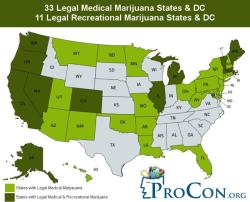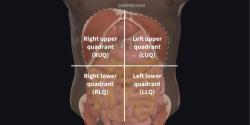How dangerous can having a slightly enlarged heart be?
A slightly enlarged heart, often referred to as mild or borderline left ventricular hypertrophy (LVH), is a medical condition where the muscle of the heart's left ventricle is slightly thicker than normal. It is typically a response to increased workload or stress on the heart. The severity and implications of a slightly enlarged heart can vary from person to person, and not all cases are dangerous. Here are some key points to consider:
Cause: Slight LVH is often associated with conditions like high blood pressure (hypertension) or valvular heart disease. It can also be a response to regular physical exercise, known as athlete's heart.
Evaluation: To assess the potential risks and concerns, it is essential to have a thorough evaluation by a healthcare provider. This may include a physical examination, an electrocardiogram (ECG or EKG), an echocardiogram, and other diagnostic tests.
Symptoms: In many cases, mild LVH may not cause any symptoms. If symptoms are present, they can include shortness of breath, chest pain, fatigue, or an irregular heartbeat.
Risks: While slight LVH itself may not be dangerous, it can be a risk factor for more serious heart conditions, especially if it is associated with underlying conditions like uncontrolled hypertension.
Management: The management of mild LVH often involves addressing the underlying cause. If it is due to hypertension, controlling blood pressure through lifestyle changes or medication can help reverse LVH or prevent it from progressing. For athlete's heart, a reduction in exercise intensity may be recommended.
Regular Monitoring: If you have a slightly enlarged heart, your healthcare provider may recommend regular follow-up appointments to monitor your heart health and ensure that the condition is not progressing.
Prevention: Lifestyle changes can play a significant role in preventing and managing mild LVH. This includes maintaining a healthy diet, engaging in regular physical activity, avoiding smoking, and managing stress.
Individual Variability: Every individual is unique, and the risks associated with mild LVH can vary. It's essential to work closely with a healthcare professional to determine the appropriate course of action based on your specific situation.
In summary, having a slightly enlarged heart, while not inherently dangerous, can be an indicator of underlying health issues, such as hypertension. It is crucial to address the underlying cause and manage the condition properly to prevent potential risks and complications. Regular medical evaluation, lifestyle changes, and following your healthcare provider's guidance are essential steps in assessing and managing a slightly enlarged heart.
Slightly Enlarged Heart: Risks and Implications for Health
A slightly enlarged heart, also known as cardiomegaly, is a condition in which the heart muscle is thicker than normal. This can happen due to a number of factors, including high blood pressure, heart disease, and valvular heart disease.
A slightly enlarged heart may not cause any symptoms, but it can increase the risk of serious health problems, such as:
- Heart failure
- Arrhythmias (irregular heartbeats)
- Sudden cardiac death
- Stroke
The severity of the risks depends on the underlying cause of the enlarged heart and the degree of enlargement.
Understanding the Causes and Consequences of Cardiac Enlargement
The most common cause of a slightly enlarged heart is high blood pressure. When blood pressure is high, the heart muscle has to work harder to pump blood against the increased pressure. This can lead to a thickening of the heart muscle.
Other causes of a slightly enlarged heart include:
- Heart disease, such as coronary artery disease or cardiomyopathy
- Valvular heart disease, such as aortic stenosis or mitral regurgitation
- Congenital heart defects
- Thyroid disease
- Diabetes
- Obesity
- Sleep apnea
- Certain medications
The consequences of a slightly enlarged heart depend on the underlying cause and the degree of enlargement. A mild enlargement may not cause any symptoms or problems. However, a more severe enlargement can lead to heart failure, arrhythmias, and other serious health problems.
Diagnosis and Monitoring of Mild Cardiac Enlargement
A slightly enlarged heart is often diagnosed during a routine physical exam. The doctor may listen to the heart with a stethoscope and feel for any abnormalities. The doctor may also order tests, such as an echocardiogram, chest X-ray, or electrocardiogram (EKG), to confirm the diagnosis and assess the severity of the enlargement.
Once a slightly enlarged heart is diagnosed, the doctor will monitor the condition closely. This may involve regular checkups, echocardiograms, and other tests. The doctor will also work with the patient to manage any underlying medical conditions, such as high blood pressure or heart disease.
Lifestyle Changes and Medical Management for Cardiac Health
There are a number of things that people with a slightly enlarged heart can do to reduce their risk of complications and improve their overall health. These include:
- Maintaining a healthy weight
- Eating a healthy diet
- Exercising regularly
- Avoiding smoking
- Managing stress
- Taking all medications as prescribed by the doctor
In some cases, the doctor may also recommend medication to help manage the underlying cause of the enlarged heart or to reduce the risk of complications.
Living Well with a Slightly Enlarged Heart: Stories and Strategies
Many people with a slightly enlarged heart live long and healthy lives. With proper management, the risks of complications can be minimized.
Here are some stories and strategies from people living with a slightly enlarged heart:
- "I was diagnosed with a slightly enlarged heart when I was 20 years old. It was a shock at first, but I learned to manage my condition and live a normal life. I eat a healthy diet, exercise regularly, and take all of my medications as prescribed. I also try to reduce stress in my life. I'm now 50 years old and I'm doing great!"
- "I was born with a congenital heart defect that caused my heart to be slightly enlarged. I had surgery to repair the defect when I was a child, but my heart is still slightly enlarged. I have to be careful not to overexert myself, but I can live a relatively normal life. I play sports and I'm working full-time. I'm grateful for the doctors and nurses who have helped me manage my condition."
If you have been diagnosed with a slightly enlarged heart, it is important to talk to your doctor about the best way to manage your condition and reduce your risk of complications. With proper management, you can live a long and healthy life.













